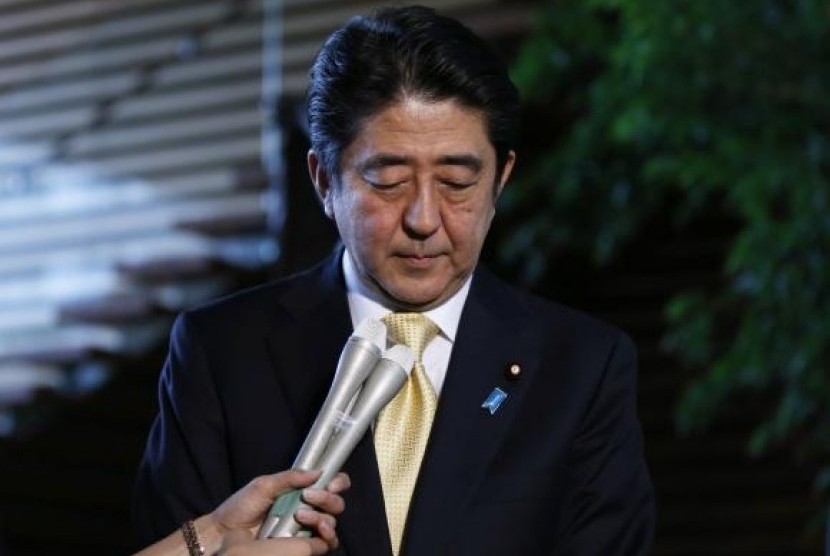REPUBLIKA.CO.ID, TOKYO -- Japanese Prime Minister Shinzo Abe was expected to announce on Tuesday that he will delay an unpopular sales tax rise and call a snap election, a day after data showed the economy had fallen into recession nearly two years after he returned to power.
The world's third-biggest economy unexpectedly shrank for a second consecutive quarter, data showed on Monday, a sign the pain from an initial rise in the sales tax to 8 percent from 5 percent in April was lasting longer than expected.
Abe was expected to announce his decision to delay the second planned rise to 10 percent from October 2015 - most likely for 18 months - and to state his intention to call an election for Dec. 14 at a news conference after his economic advisers meet, media and ruling party lawmakers have said.
Abe - who returned to power in December 2012 pledging to revive the economy with his "Abenomics" mix of hyper-easy monetary policy, spending and reform - must tread a fine line to avoid suggesting that Japan is abandoning fiscal reform despite a public debt that is already twice the size of the economy.
Finance Minister Taro Aso, signaling that a delay was likely, told reporters on Tuesday that a sales tax hike at some point was inevitable to pay for the bulging social welfare costs of Japan's fast-ageing population.
Removing a clause in current law that allows the government to delay the tax hike if economic conditions are too severe would be one option to reassure investors that the increase would not be postponed again, Aso said.
"It's better to have some form of guarantee," he said.
Aso also said the government would prioritize passing through parliament a supplementary budget for the current fiscal year to fund a stimulus package, which media reports have said could be worth 2-3 trillion yen (17-26 billion USD).
Abe has been tight-lipped in public about his plans, but repeated on Monday that beating the deflation that has gripped Japan for most of the past two decades was vital.
On Monday, he also hinted he was preparing for battle at the polls. Speaking at a reception, Abe quoted a phrase - "weather today fine but high waves" – used by a Japanese admiral in a telegram before a naval battle in the 1905 Russo-Japanese war. The Japanese fleet destroyed two-thirds of the enemy vessels.
No general election need be held until late 2016. But politicians say Abe wants to renew his mandate while his ratings are relatively high and the opposition weak before tackling unpopular policies next year.


